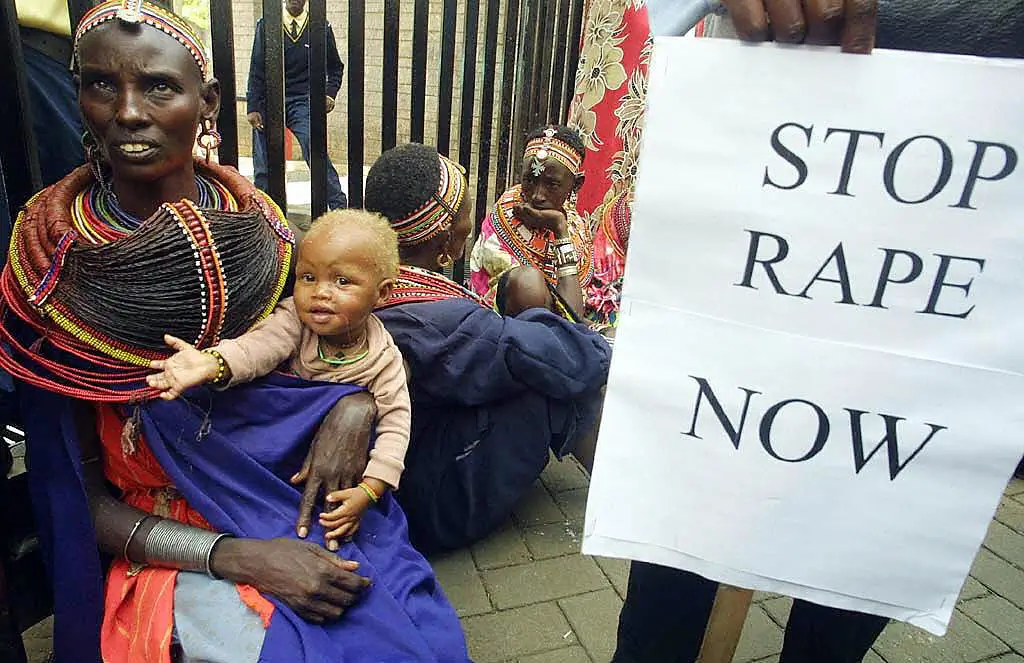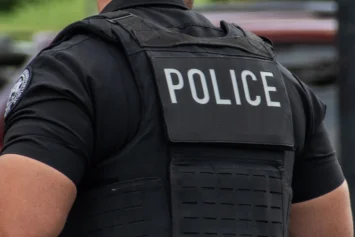Over several decades, British troops have been accused of fathering dozens of children through the rape of hundreds of Kenyan women during their training stints in the East African nation.
A recent CNN report highlighted the ongoing birth of mixed-race children in rural areas of central Kenya, where the British Army Training Unit (BATUK) operates. Mixed-race infants are still being born in the area where the BATUK trains troops just north of Nairobi.
The CNN report said many Kenyan women claim they were raped by troops from the unit, and other mothers struggle to take care of their children whose British fathers haven’t provided any child support.

What’s even more concerning is that the U.K. government hasn’t made any efforts to hold the soldiers accountable for their actions, according to the Kenya National Commission on Human Rights.
“These children really deserve British citizenship, they are British kids. Their fathers were British,” Marion Mutugi, a commissioner for the Kenya National Commission on Human Rights, told CNN’s Larry Madowo.
Britain pays Kenya around $400,000 annually to let its soldiers train in the wildlife conservancies of Laikipia and Samburu, CNN reported. Despite local opposition, Kenya renewed the defense pact in 2021. The BATUK maintains a permanent base in Nanyuki with 100 full-time staff.
“So the British government is just not interested in resolving these cases,” CNN’s Madowo said during his interview with Mutugi.
“We don’t think they are interested,” Mutugi said. “We call it BBBB, British boys behaving badly.”
Marian Pannalossy, 17, lives alone in Archer’s Post, a small town 200 miles north of Nairobi. She is one of the many children left behind. Pannalossy told Madowo she feels ostracized because she is light-skinned living in a place where it’s rare to see mixed-race people.
“They call me ‘mzungu maskini,’ or a poor white girl,” she said during an interview at her single-room house. “They always say ‘Why are you here? Just look for connections so that you can go to your own people. You don’t belong here. You’re not supposed to be here suffering.’ “
The accusations against British troops in Kenya, including murder, date back to the 1950s. In one chilling case from 2012, a 21-year-old woman disappeared after allegedly entering a hotel with British troops. Her body was later found in a septic tank, but the soldier identified by his peers as the suspected murderer has never faced trial.
Despite rape allegations by 2,187 Kenyan women in 2007, the U.K. Defense Ministry dismissed the claims, stating there was “no reliable evidence to support any single allegation,” CNN said. The Royal Military Police investigators deemed the Kenyan evidence as fabricated, without conducting DNA tests on any children born to the alleged victims.
Meanwhile, some women testified in 2009 that they were preyed on by British soldiers during their daily chores. Kenya’s Truth, Justice, and Reconciliation Commission claims the government lost the case files.
The 2009 report noted, “The most horrific allegation of rape is said to have [occurred] in October 1997 at Archer’s Post where 30 women were gang raped by British soldiers, often at knifepoint and sometimes inside the victims’ own manyattas (compounds),” as reported by CNN.
A recent clause now allows British soldiers to be sued in Kenyan courts. It means many of these women may finally have their day in court.
Lawyer Kelvin Kubai, who has represented alleged rape victims, is seeking to reopen rape charges against BATUK troops involving over 300 women, stating, “The Kenyan legal system offers a better redress than what is available in the UK.”
Under Kenyan law, human rights violations have no statute of limitations, potentially enabling compensation for decades-old rape victims.
“It is traumatic and psychologically disturbing to people … to continue to see the British training amidst them with all these unresolved trauma and historical injustices,” Kubai told CNN. “We can win because we have a very progressive constitution.”


